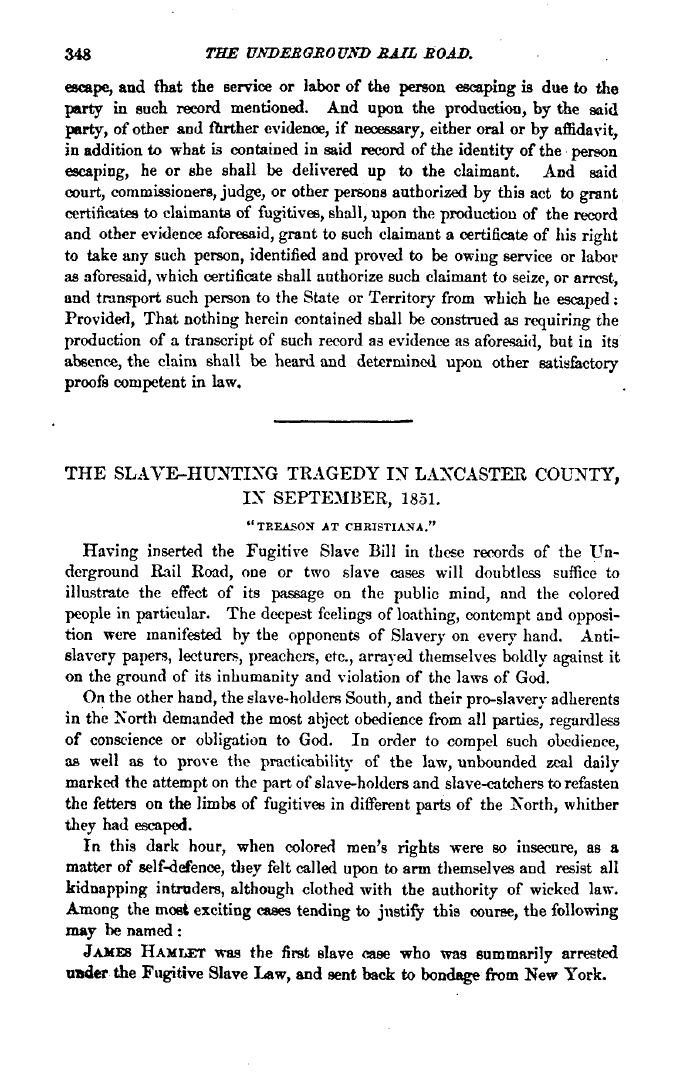 |
||||
 |
||||
| 348 THE UNDERGROUND SAIL ROAD. escape, and that the service or labor of the person escaping is due to the party in such record mentioned. And upon the production, by the said party, of other and farther evidence, if necessary, either oral or by affidavit, in addition to what is contained in said record of the identity of the person escaping, he or she shall be delivered up to the claimant. And said court, commissioners, judge, or other persons authorized by this act to grant certificates to claimants of fugitives, shall, upon the production of the record and other evidence aforesaid, grant to such claimant a certificate of his right to take any such person, identified and proved to be owing service or labor as aforesaid, which certificate shall authorize such claimant to seize, or arrest, and transport such person to the State or Territory from winch Le escaped : Provider!, That nothing herein contained shall be construed as requiring the production of a transcript of such record as evidence as aforesaid, but in its absence, the claim shall be heard and determined upon other satisfactory proofs competent in law. THE SLAVE-HUNTING TRAGEDY IN LANCASTER COUNTY, IX SEPTEMBER, 1851. "TREASON AT CHRISTIANA." Having inserted the Fugitive Slave Bill in tbesc records of the Underground Rail Road, one or two slave cases will doubtless suffice to illustrate the effect of its passage on the public mind, nnd the colored people in particular. The deepest feelings of loathing, contempt and opposition were manifested by the opponents of Slavery on every hand. Anti-slax'eiy papers, lecturers, preachers, etc., arrayed themselves boldly against it on the ground of its inhumanity and violation of the laws of God. On the other hand, the slave-holders South, and their pro-slavery adherents in the North demanded the most abject obedience from all parties, regardless of conscience or obligation to God. In order to compel such obedience, as well as to prove the practicability of the law, unbounded zeal daily marked the attempt on the part of slave-holders and slave-catchers to refasten the fetters on the limbs of fugitives in different parts of the North, whither they had escaped. In this dark hour, when colored men's righta were so insecure, as a matter of self-defence, they felt called upon to arm themselves and resist all kidnapping intruders, although clothed with the authority of wicked la\r. Among the most exciting cases tending to justify this course, the following may be named: JAMBS HAMUTT was the first slave case who was summarily arrested under the Fugitive Slave Law, and sent back to bondage from New York. |